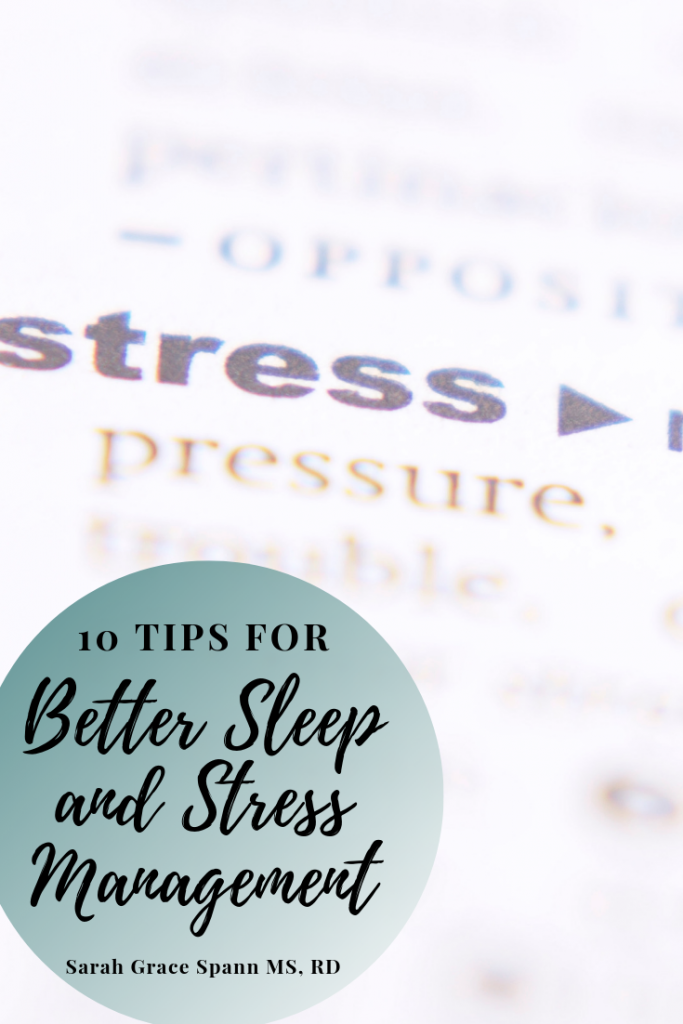If you struggle with sleep, you definitely aren’t alone! After suffering from sleeplessness often, I’m breaking down the 10 tips for better sleep and stress management.*
1. Consider Cortisol Manager
As we mentioned in my instagram post, one of the root causes for occasional sleeplessness is unbalanced cortisol levels. And if cortisol levels aren’t balanced, we often have a hard time sleeping. And as a result, we turn to things like melatonin and other sleep aids. I know I did for so long! But the thing is, these may not work (I know many nights I still stayed up wide awake!), and if they do finally make you fall asleep, you still wake up with that “sleep aid hangover”.
That’s why Cortisol Manager has been my go-to lately! It helps to balance cortisol levels to reduce stress, which ends up supporting a good night’s sleep for me, helping me to feel my best so that I can be my best!
Simply take 1 capsule right before bed, or increase to 2 capsules in times of high stress!
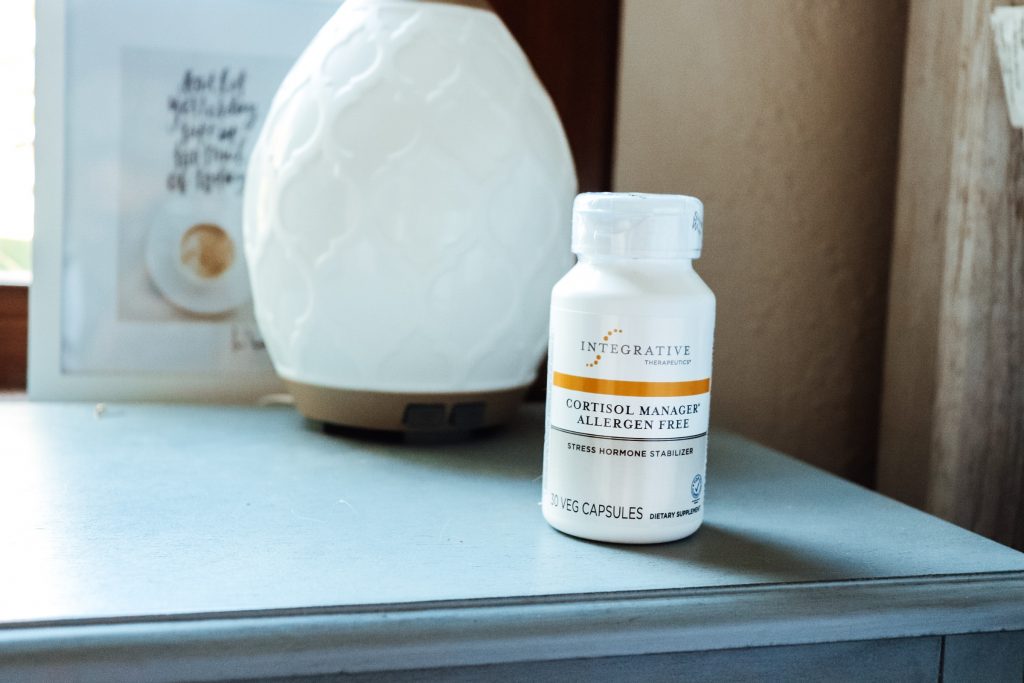
2. Move your body throughout the day or get in a workout
Exercise actually leads to an increase in body temperature, and the post-exercise drop in temperature may promote falling asleep. Not only that, but exercise may also reduce insomnia by decreasing arousal, anxiety, and depressive symptoms, according to some studies found here.
Action Step: The American Heart Association recommends at least 150 minutes of exercise a week for healthy adults—that’s 30 minutes a day, five days a week

3.Eat balanced, nutritious meals
Exercise isn’t the only part of our healthy lifestyles that can affect our stress levels and quality of sleep. You guessed it, diet is another! Diet and sleep have been shown to be linked, as a poor diet can affect our sleep, and poor sleep can affect what we eat and how much!
It’s important to focus on the #freshfitnFIVE for most meals and snacks, (a smart carb, lean protein, healthy fat, fiber, and some flavor boosts), along with simply moderating the amounts of food you eat, to support a good night’s sleep!
4. Schedule in “white space” or distress activities for yourself into your calendar
In such a busy world, so often we put ourselves and our own mental health on the back burner. Try to schedule in some white space where you have nothing planned, that is meant for you to simply decompress. Also try to fit in some 5-10 minute breaks here and there throughout your busy, chaotic days, to never allow stress levels to become too high. Feeling all those muscles clenched or an overwhelming sense of anxiousness as you sit at work? Take a 5-minute walk break if possible to reset!
5. Create a solid night time routine
This is one of the first things I work on with my 1-1 nutrition clients: routines. And I actually released a podcast episode on routines here! And even though I often talk about my morning routine like I did in this post, night time routines are equally important!
Try to set aside the last hour or 2 of your night, and create a routine for success that relaxes you and allows you to fully shut off from the day. Maybe that’s a hot bubble bath and a good book, maybe that’s an after-dinner walk, maybe that’s just some time spent with your significant other. I try to spend the last few hours making dinner with Brandon and sometimes going on a walk or short run. And of course, taking my Cortisol Manager right before bed is part of my routine as well!
What helps you to completely decompress after a long day? What hour are you committing to be in bed and on your way to sleep? Getting in a good routine is key!
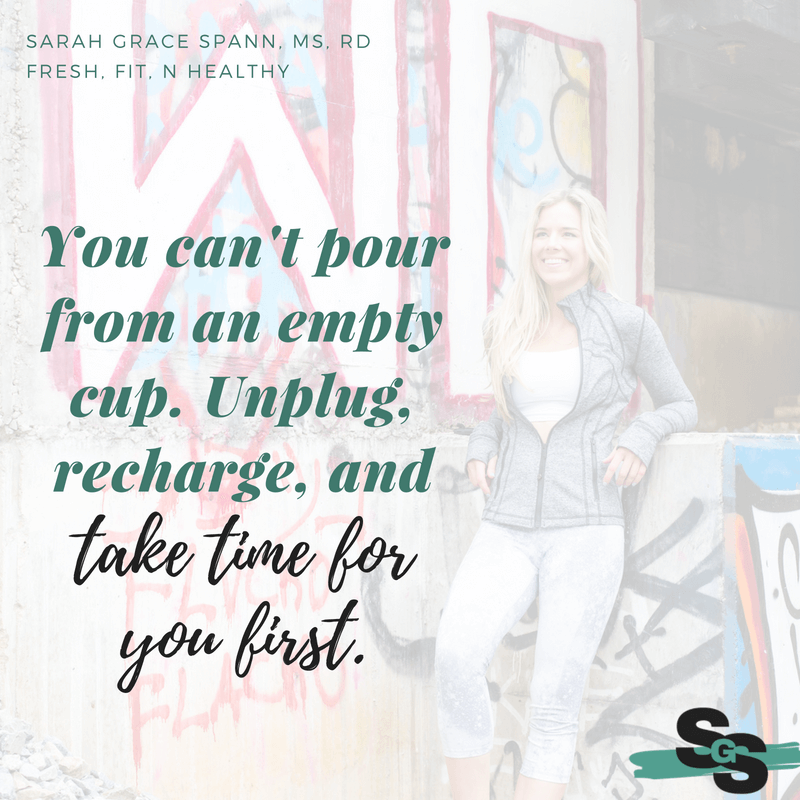
6. Create a shut off time from work and technology
Going off of last point on night time routines, setting a very clear, defined shut off time is KEY. Good intentions only get you so far without planning ahead and setting boundaries. What is that hour for you that you will commit to shut down from work and the chaos of the day, and simply be present with everyone around you? It’s much easier said than done, but it is oh so important!
7. ‘Lay down’ anything stressing you out in a journal
This isn’t for everyone, but journaling has been a huge help for me! I can’t tell you how many filled up journals I have from over the years. It helps me process things that happened, become more aware of why I’m feeling the way I am, and simply “let it go and lay it down”, as I put it on the paper.
If you haven’t tried it yet, don’t knock it out before doing it for a few days first! It’s been so helpful for not only me, but many of my clients!
Don’t know where to start? Answer these questions:
How am I feeling today? What am I grateful for?
What am I laying down today that is setting heavy in me?
I AM ______ (affirmations)
8. Make your room a peaceful, work-free environment
This one is pretty self-explanatory, but simply don’t make your room a place of work. Make your room a place for only sleep and relaxing activities only. Don’t sit in bed as you’re getting ready to shut down, with your computer open as you finish out some last minute work.
And if you are using technology at night, make sure to protect your eyes from blue light by either certain apps/software, or special glasses!
9. Talk it out
Feeling upset? Angry? Sad? Disappointed? The worst thing you can do is hold it in. That’s bound to keep you up at night! If it involves someone else, have a conversation with them. If it doesn’t, call a trusted friend or family member and chat it out. No pushing things under the rug, that will only do more damage in the long run!
10. De-clutter your space and life through eliminating unnecessary things and learning to say no.
This one is HUGE. I for so long could not say no to people. I was a “yes girl”. No matter what it was, I said yes because of not wanting to disappoint others. I also just tend to take on way too much at once and get burned out as a 1 on the enneagram (perfectionist, type-A gal). Learn a lesson from past me, learn to say no. Let your natural instinct be to say no, and only if you can reason out why you really should do it, say yes.
Also in terms of de-cluttering, this goes for your space too! Take time to clean out 1 space in your home at a time, by giving away things you haven’t used/worn in over a year.
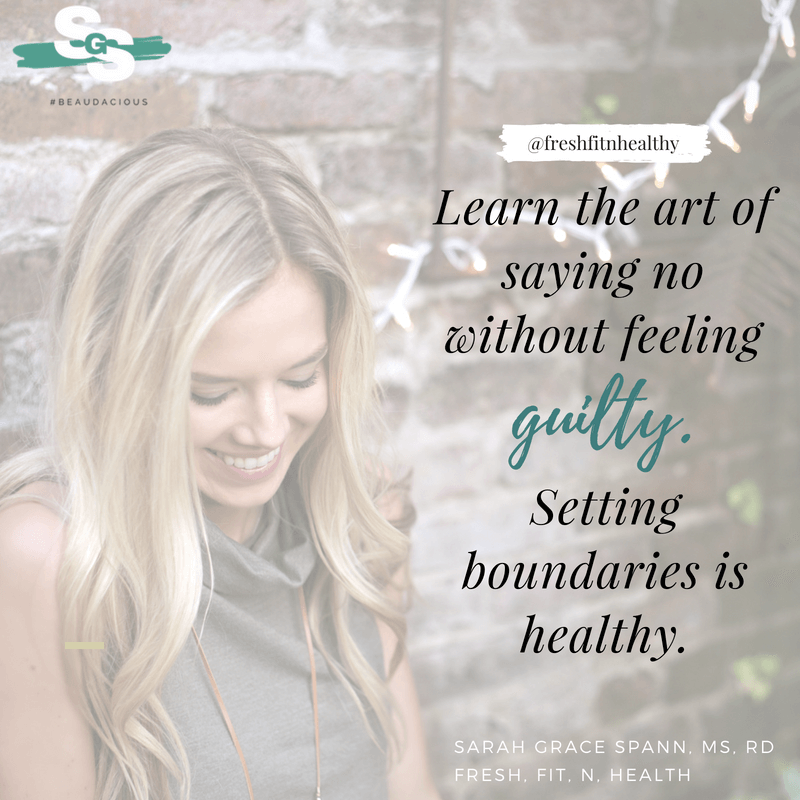
So there are my top tips as a registered dietitian for better sleep and stress management!
What would you add to this list? If you haven’t checked out Integrative Therapeutics Cortisol Manager yet, definitely go learn more about it here. It not only helps balance out your cortisol levels, but it’s even available in an Allergen Free formula that is not only certified vegan, but free of the top 8 allergens!
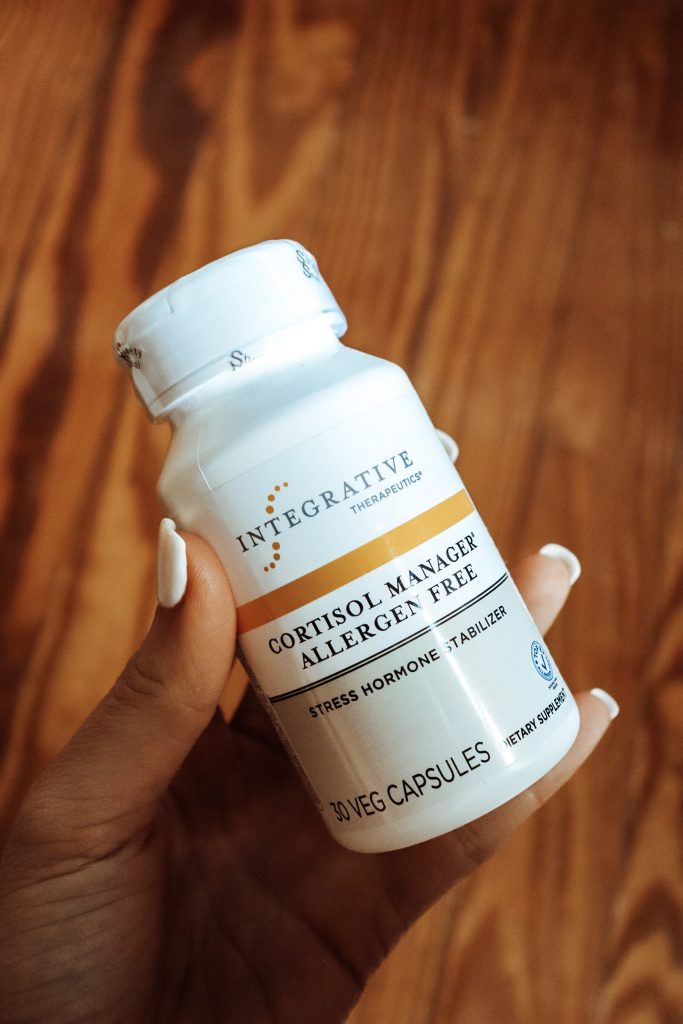
Now remember, Cortisol Manager or any of these other tips won’t remove the actual stressor from your life; you know, like that person that instantly popped into your mind! But it will help balance the “stress hormone” cortisol when you take it right before bed, which can help lead to restful sleep! What steps are you going to take to sleep better and balance your cortisol levels?
*This statement has not been evaluated by the Food and Drug Administration. This product is not intended to diagnose, treat, cure, or prevent any disease.
